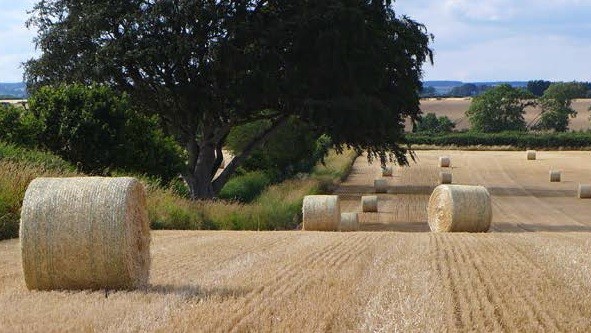Make the most of your ‘natural capital’
'Natural capital' is a relatively new phrase within UK agriculture. We spoke about it as part of our presentations at this year's 3D Thinking seminars and it sparked a real interest amongst growers.
As we explored the phrase's definition and what it meant for farmers, our audience soon recognised the importance of 'boarding the agri-environment bus' now, rather than sitting and waiting for political clarity. It's safe to say that the latter could take some time, whereas climbing aboard brings about opportunities to receive financial rewards in exchange for managing existing environmental features and introducing new ones on farm. In essence, as a farmer you can be paid to learn and to deliver the goods.
To offer a better understanding of the opportunities available around natural capital, I thought it would be useful to share answers to some of the questions we are asked most frequently at Kings.
What is natural capital?
The phrase is defined by DEFRA as the resources around us in terms of water, air, trees, soil, energy, wood and biodiversity. Whilst these elements have always been present and are of course familiar to all of us, government policy is moving towards rewarding growers for looking after them while producing food in a sustainable manner.
Where has this change in focus come from?
In the new era outside the European Union, the UK Government is in a position to review the way farmers and landowners are paid for managing their land. As a result, we're seeing a shift from payments via the Common Agricultural Policy to farmers being rewarded for producing food and effectively managing the environment.
What is likely to happen next?
There will be a strong focus on delivering good agricultural practice, which will include reducing diffuse pollution and emissions, and encouraging best practice when it comes to soil management. Protecting and providing for farmland birds, pollinators and the wider farmed environment has the potential to result in financial rewards for farmers, with soil, water, biodiversity, society and carbon storage recognised as farm assets in the same way we currently value machinery, land, buildings and staff.
A common question is whether or not there will still be agri-environment schemes going forward. Being rewarded on a scale relevant to the efforts you put in will be a key focus, resulting in a 'payment by results' emphasis from stewardship schemes in the future.
To some extent, the practice of paying growers in relation to environmental outcomes is already being trialled in England through the Results Based Agri-environment Payment Scheme (RBAPS). As well as this, interests in a collaborative approach to delivering good environmental outcomes on a landscape scale are likely to continue in the form of Facilitation Funding, commonly known as 'cluster farms'.
What should you be doing to prepare for the future and ensure you benefit from these changes?
The best thing is to start recognising what natural capital looks like on the land you manage or are involved in. For example, farmland birds, pollinators, improved soil management and wider rotations can all contribute. Recording your current assets can give you a benchmark to work from too, allowing you to then develop a plan to invest and improve on your natural capital returns.
How do you do this?
Firstly, take good advice from your trusted advisor to work out a natural capital business plan. Utilising key tools such as iSOYLscout and MySOYL, which help to record soil, yield, biomass and other essential data, can help you decide which parts of the farm to use for food production and which for the environment. As a result, you can farm your land effectively, delivering sustainable revenues whilst improving your natural capital assets at the same time.
How can Kings help?
With the knowledge and understanding of our expert team, we can help you integrate environment options that achieve multi-functional benefits across your whole farm business. For example, an Ecological Focus Area (EFA) fallow wild bird seed mix meets your Basic Payment requirements but can also benefit farmland birds and be combined with your sporting interests.
Furthermore, we can also link you to the necessary digital tools that will help to support your business decisions through the provision of mapping, data recording and plot measuring, making the management of your agri-environment options even easier.
For more information and to find out how to make the most of the natural capital on your farm, please get in touch.
As a subscriber, you’ll receive email alerts each time a new blog is published so you can always stay updated with the latest advice and insights from our experts






Comments